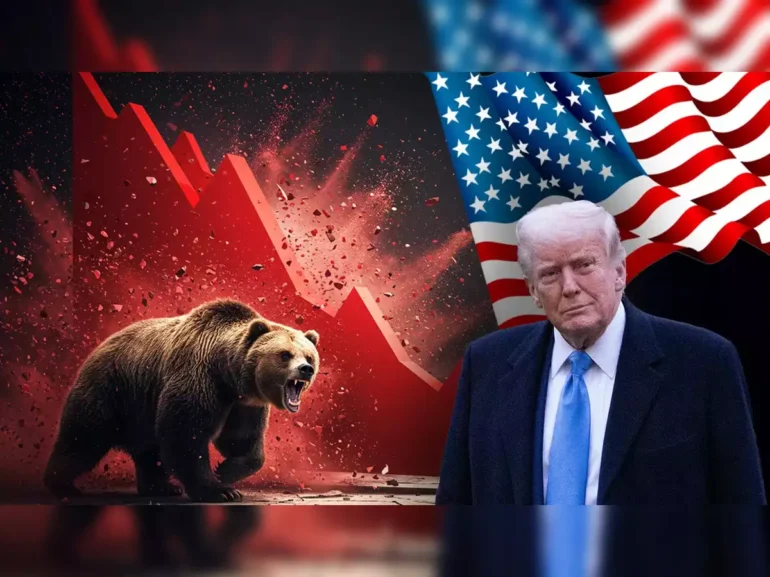magine waking up to a world where the prices of your favorite gadgets, clothes, and snacks might change overnight—not because of a sale, but because of a massive new policy shaking up global trade. That’s exactly what’s happening right now. On Wednesday, April 2, 2025, President Donald Trump announced sweeping tariffs—a 10% tax on all imports to the United States, plus even higher rates for certain countries. The decision sent shockwaves through the global economy, causing stock markets to plummet and prompting fierce debates about what this means for everyday Americans. But according to Trump’s top economic adviser, Kevin Hassett, it’s all part of a brilliant plan that’s already working. So, what’s the real story here?
Speaking on ABC News’ “This Week” on April 6, 2025, Hassett, the Director of the National Economic Council, dropped a bombshell: more than 50 countries have reached out to the White House to negotiate trade deals since the tariff announcement. “They’re coming to the table,” Hassett told anchor George Stephanopoulos, arguing that these nations are feeling the heat and want to avoid the hefty costs of the tariffs. He’s confident this won’t hit American wallets hard, saying, “I don’t think you’re going to see a big effect on the consumer in the U.S.” His reasoning? Countries like China, which he claims have been “dumping goods” into the U.S. to boost their own jobs, will have to lower their prices to stay competitive.
But not everyone’s buying this optimistic take. The tariffs, which kicked in on Saturday for the universal 10% rate and are set to expand to specific countries on Wednesday, April 9, have already triggered chaos. The Dow Jones Industrial Average tanked 2,200 points, and the Nasdaq slid into a bear market. Critics, including former Treasury Secretary Larry Summers, warn that this could be a disaster. “This is the biggest self-inflicted wound we’ve put on our economy in history,” Summers said in a fiery rebuttal. He predicts higher prices, fewer jobs, and a staggering $30 trillion loss for consumers and businesses combined. That’s trillion with a “t”—enough to make your head spin.
The global reaction has been just as dramatic. China fired back with retaliatory tariffs, and markets from Saudi Arabia to Wall Street are reeling. Taiwan’s President Lai Ching-te took a different tack, offering zero tariffs to the U.S. in a bid to strengthen ties rather than fight back. Meanwhile, investors are on edge, bracing for what some are calling “tariff turmoil” after the worst week for U.S. stocks since the COVID-19 crisis five years ago.
So, why is Trump doing this? Hassett says it’s been the president’s mission for decades—think back to his appearances on shows like “The View” 30 or 40 years ago, where he railed against unfair trade. Trump believes countries have been ripping off the U.S. by flooding our markets with cheap goods, and he sees tariffs as the fix. But there’s a twist: some suspect he’s also playing a bigger game. On Truth Social, Trump reposted a video hinting that the market crash might pressure the Federal Reserve to cut interest rates, boosting the economy. When pressed by Stephanopoulos, Hassett dodged, insisting the Fed is independent and there’s no “political coercion” at play. Still, the question lingers: is this a calculated move or just Trump being Trump?
Not all of Trump’s team is sweating the fallout. Treasury Secretary Scott Bessent, appearing on NBC’s “Meet the Press,” shrugged off recession fears, pointing to strong job growth numbers from Friday. “We are moving forward,” he said confidently. Peter Navarro, Trump’s tariff guru, even told Fox News that investors should “stay in” because a “biggest boom” is coming. But with Russia oddly spared from the tariffs—Hassett cited ongoing Ukraine talks as the reason—skeptics wonder if the strategy is as airtight as Team Trump claims.
Here’s the bottom line: Trump’s tariffs are a high-stakes gamble. If Hassett’s right, the U.S. could come out on top, forcing other countries to play by our rules without jacking up prices at home. If Summers is correct, we’re staring down inflation, job losses, and a recession that could hit harder than anything we’ve seen in years. For now, the world’s watching—and negotiating—as markets wobble and the debate rages on. What do you think: bold leadership or reckless risk?
